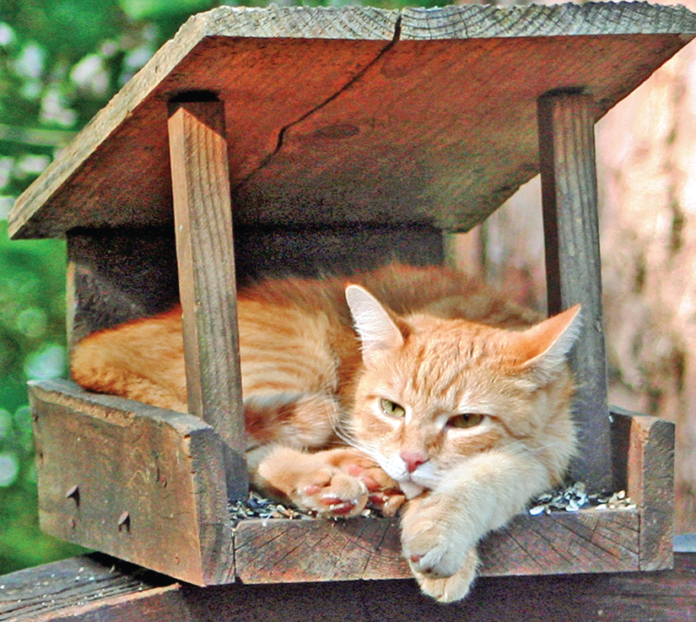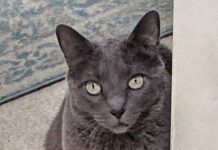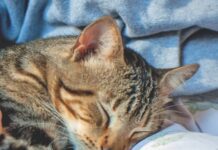Outdoor cats taking down birds has long been a point of contention between bird lovers and cat lovers. Feeding a cat premium commercial food in which proteins came from meat resulted in a 36% reduction in the number of prey animals brought home, and five to 10 minutes of daily play resulted in a 25% reduction. The study used a 12-week trial of 355 cats in 219 households.
This is not surprising to veterinary behaviorist Sharon Crowell-Davis DVM, PhD., DACVB, a 1983 graduate of the Cornell University School of Veterinary Medicine. “Meat and play satisfy cats’ natural instinct to hunt,” she explained.
“Some cat foods contain protein from plant sources such as soy, and it is possible that, despite forming a complete diet, these foods leave some cats deficient in one or more micronutrients, prompting them to hunt,” said Martina Cecchetti, a doctoral student at the University of Exeter who helped conduct the experiments. The researchers said it was not clear which elements of the meaty food led to the reduction in hunting.
Lisa George, from Helston in Cornwall, who looks after Minnie, a 3-year-old tabby cat that took part in the trial, said: “Minnie loves to hunt. More often than not, she will bring her prey home and let it go somewhere in the house. We’ve had birds in the bedroom, rats in the waste paper bin—which took us three days to catch—and rabbits in the utility room.
“On changing Minnie’s food (previously supermarket brand), to Lily’s Kitchen, I found she hardly hunted at all. This continued the whole time she was on this food. I can honestly say I couldn’t believe the difference as regards her hunting behavior.”
“Previous research in this area has focused on inhibiting cats’ ability to hunt, either by keeping them indoors or fitting them with collars, devices, and deterrents,” said Professor Robbie McDonald, of Exeter’s Environment and Sustainability Institute. Plus, says McDonald, some cat owners worry about the welfare implications of restricting a cat’s outdoor access by keeping them indoors.
The researchers used colorful collar covers from Birdsbesafe, which reduced the numbers of birds captured and brought home by 42%. However, the collars had no effect on hunting mammals.
Cat bells had no discernible overall effect, although the researchers say the impact on individual cats varied widely, suggesting some cats learn to hunt successfully despite wearing a bell.
Play in the study involved owners simulating hunting by moving a feather toy on a string and wand so cats could stalk, chase, and pounce. Owners also gave cats a toy mouse to play with after each “hunt,” mimicking a real kill.n
Cecchtti, M., et al. Provision of High Meat Content Food and Object Play Reduce Predation of Wild Animals by Domestic Cats Felis catus. Current Biology, 2021; DOI: 10.1016/j.cub.2020.12.044. Science Daily.




